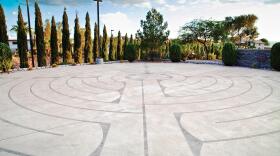Four years ago, she was standing on the summit of Mt. Kilimanjaro. Today, Susan Malcher has trouble staying upright in her Rollerblades. What happened? Last July, something came between the 50-year-old outdoor enthusiast and the latest peak she was attacking: A stroke. As she and her party approached Wheeler Peak, which she'd summited several times before, Malcher started getting clumsy and confused. The others went on. She sat on a rock to wait for them. What happened next is still fuzzy in her memory. "I had my hiking pole between my legs. All of a sudden it started to go to the right and push against my leg. I tried to move my left leg and couldn't. I slid off the rock and fell on the ground." A physical therapist happened on Malcher lying on the ground, and helped her back to base camp. "It's hard to explain to people what your mental processes are at that point. I can say a lot in retrospect, but at the time what's actually happening is indescribable," Malcher says. Tests revealed the culprit: a small hole in her heart. Called a shunt or PFO, this common congenital disorder had caused the stroke. Daunting diagnosis aside, Malcher prescribed herself heavy doses of physical activity. It was so hard to sit still during her week in the hospital, Malcher was cordoned off by "Fall Risk" signs. She started physical therapy right away, and as soon as possible was walking her dog in the park, then running 5Ks. By December? She'd climbed Bonanza Peak. Sure, it's 10,000 feet, but that's a walk in the park for her former self. Although concurrent menopause (and resulting weight gain) has thrown a wrench in her recovery, Malcher says she's determined to get back to where she was before her stroke, when she ran her own hiking group. For now, she's focusing on retraining herself mentally for her career as a paralegal. In the meantime, she frequently self-medicates: Outdoor recreation is her antidepressant. "One of the drawbacks of the mental disability is you get really depressed," she says. "Running and hiking have always been my drug of choice."
PROFILE: Susan Malcher overcomes a stroke -- with hiking










